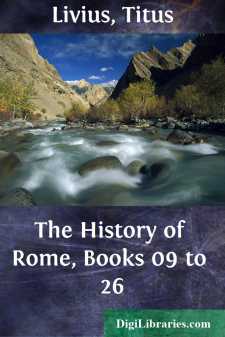Categories
- Antiques & Collectibles 13
- Architecture 36
- Art 48
- Bibles 22
- Biography & Autobiography 813
- Body, Mind & Spirit 142
- Business & Economics 28
- Children's Books 16
- Children's Fiction 13
- Computers 4
- Cooking 94
- Crafts & Hobbies 4
- Drama 346
- Education 46
- Family & Relationships 57
- Fiction 11829
- Games 19
- Gardening 17
- Health & Fitness 34
- History 1377
- House & Home 1
- Humor 147
- Juvenile Fiction 1873
- Juvenile Nonfiction 202
- Language Arts & Disciplines 88
- Law 16
- Literary Collections 686
- Literary Criticism 179
- Mathematics 13
- Medical 41
- Music 40
- Nature 179
- Non-Classifiable 1768
- Performing Arts 7
- Periodicals 1453
- Philosophy 64
- Photography 2
- Poetry 896
- Political Science 203
- Psychology 42
- Reference 154
- Religion 513
- Science 126
- Self-Help 84
- Social Science 81
- Sports & Recreation 34
- Study Aids 3
- Technology & Engineering 59
- Transportation 23
- Travel 463
- True Crime 29
The Evolution of an Empire A Brief Historical Sketch of Germany
Categories:
Description:
Excerpt
CHAPTER I.
Foundation building is neither picturesque nor especially interesting, but it is indispensable. However fair the structure is to be, one must first lay the rough-hewn stones upon which it is to rest. It would be much pleasanter in this sketch to display at once the minarets and towers, and stained-glass windows; but that can only be done when one's castle is in Spain.
Would we comprehend the Germany of to-day, we must hold firmly in our minds an epitome of what it has been, and see vividly the devious path of its development through the ages.
The German nation is of ancient lineage, and indeed belongs to the royal line of human descent, the Aryan; its ancestral roots running back until lost in the heart of Asia, in the mists of antiquity.
The home of the Aryan race is shrouded in mystery, as are the impelling causes which sent those successive tides of humanity into Europe. But we know with certainty that when the last great wave spread over Eastern Europe, or Russia, about one thousand years before Christ, the submergence of that continent was complete.
Before the coming of the Aryan, the Rhine flowed as now; the Alps pierced the sky with their glistening peaks as they do to-day; the Danube, the Rhône, hurried on, as now, toward the sea. Was it all a beautiful, unpeopled solitude waiting in silence for the richly endowed Asiatic to come and possess it? Far from it. It was teeming with humanity—if, indeed, we may call such the race which modern research and discovery has revealed to us. It is only within the last thirty years that anything whatever has been known of prehistoric man; but now we are able to reconstruct him with probable accuracy. A creature, bestial in appearance and in life; dwelling in caves, which, however, a dawning sense of a higher humanity led him to decorate with carvings of birds and fishes; but, certain it is, the brain which inhabited that skull was incapable of performing the mental processes necessary to the simplest form of civilization; and life must have been to him simply a thing of fierce appetites and brutal instincts. Such was the being encountered by the Aryan, when he penetrated the mysterious land beyond the confines of Greece and Italy.
The extermination, and perhaps, to some extent, assimilation, of this terrible race must have required centuries of brutalizing conflict, and, it is easy to imagine, would have produced just such men as were the northern barbarians, who for five hundred years terrorized Europe: men insensible to fear, terrible, fierce, but with fine instincts for civilization—dormant Aryan germs, which quickly developed when brought into contact with a superior race.
The earliest Indo-European migration is supposed to have been into Greece and Italy, where was laid the basis for the civilization of the world. The second was probably into Western Europe and the British Isles; then, after many centuries, the central, and last, and at a time comparatively recent, into the Eastern portion of the continent....


















